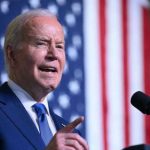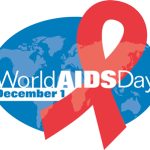Stakeholders and participants at the 60th anniversary and Annual General Meeting of the Association of Medical Laboratory Scientists of Nigeria (AMLSN), in Umuahia, Abia State have called for proper regulation of the profession in Nigeria to bring it up to global standards.
Speaking at the event in Umuahia, one of the guest speakers and Deputy Speaker of the House of Representatives, Hon Ben Kalu, lamented that the humongous revenue of $1.6 billion lost to medical tourism annually would have been recovered if the necessary legislation was promulgated to regulate and strengthen medical laboratory services.
Kalu, the member representing the Bende federal constituency noted that medical laboratory science was the backbone of medical service as no effective medical treatment could be administered without accurate laboratory diagnosis.
“The legislature must rise to the challenge of building a health care system envisioned in the millennium development goals,” he said.
Represented by a commissioner in the National Population Commission NPC, Hon Emma Eke, the lawmaker observed that as a critical component of medical service, laboratory science practice regulation would be overlooked at the peril of the national health policy and called for adequate budgetary provision and proper monitoring to ensure that approved funds are judiciously utilised.
In his remarks, the Governor of Abia State, Dr Alex Otti, acknowledged the contributions of medical laboratory scientists to healthcare delivery in the country, which he said was in line with his administration’s commitment to the healthcare needs of the people demonstrated by allocating 15% of its budget to health.
Otti, represented by the Permanent Secretary of the Ministry of Health, Dr Ifeyinwa Kalu, called on laboratory scientists to adhere to the highest ethical and professional standards in their services.
In his address, the national president of the Association, Dr Uche Odionyenma, called on the federal government and the National Assembly “to rectify breaches in the MLSCN Act,” which he said had hindered effective provision of quality medical laboratory services in the country.
While calling on members to commit themselves to the ideals of professional conduct, Odionyenma advocated for “a ministerial memo on employment of medical laboratory scientists to run functional PHC laboratories in all the 774 LGAs and the National Council on Health to allow for increased access to quality diagnostic services and effective public health outreach.”
The chairman of the occasion and pioneer president of the Association, Professor Dennis Agbonlahor, said the Association had come a long way in producing academics, professionals and politicians but lamented the internal leadership crisis that had rocked the MLSCN in the last five months, leading to litigations and appealed to all parties to obey the rule of law in resolving them for peace and survival of the Association.
The keynote speaker and Vice Chancellor of Michael Okpara University of Agriculture, Umudike, MOUAU, Professor Maduebibisi Iwe, described the theme: Current Innovations and Challenges in Medical Laboratory Services, as apt, but identified inadequate resources, inaccurate diagnosis, and disease surveillance, among others, as some of the challenges that must be addressed in the 21st century medical laboratory practice.
According to the VC, Nigeria accounts for 27% of global malaria cases and 29% of deaths of STDs even as many states have fallen short of the 15% WHO recommended budgetary allocation to the health sector.
He called on members of the Association to create innovative ways of solving the myriads of challenges including brain drain, inadequate training and poor working conditions, to meet the growing need for excellent services.








